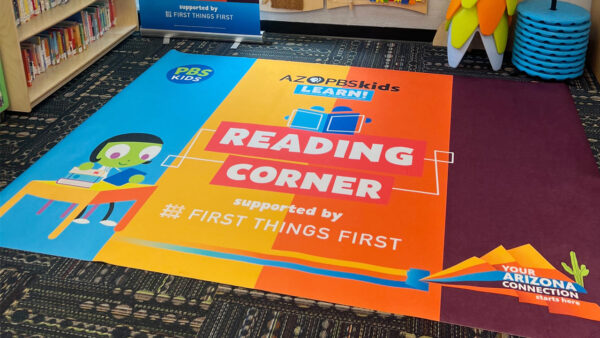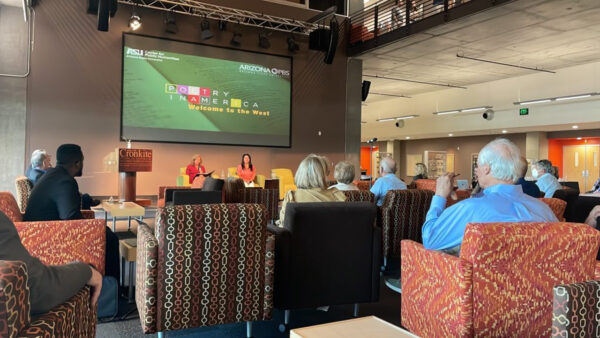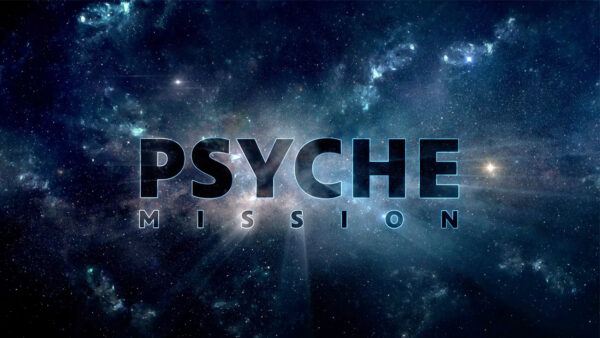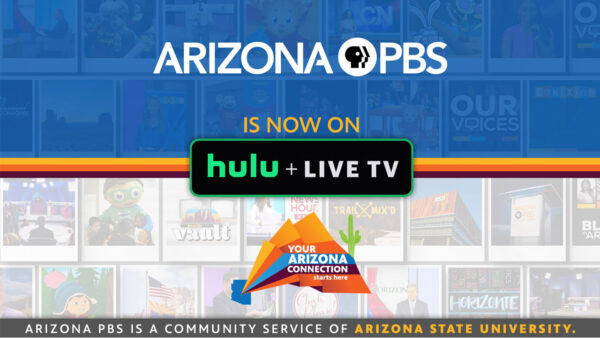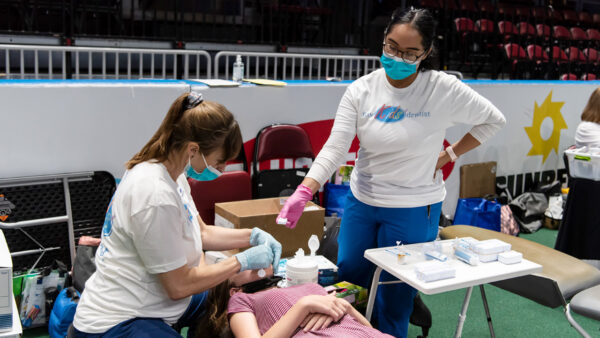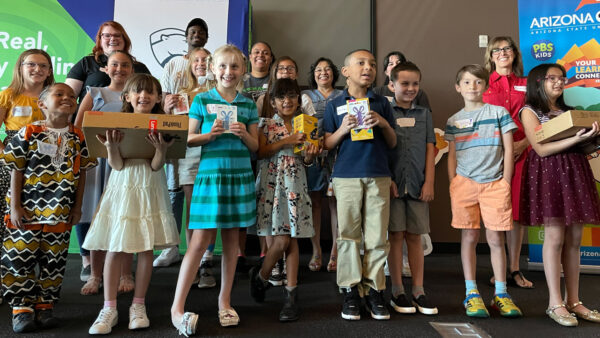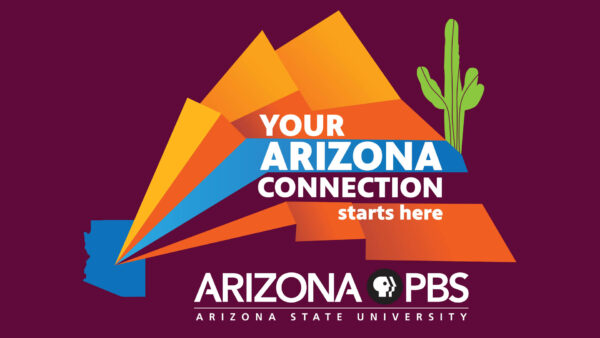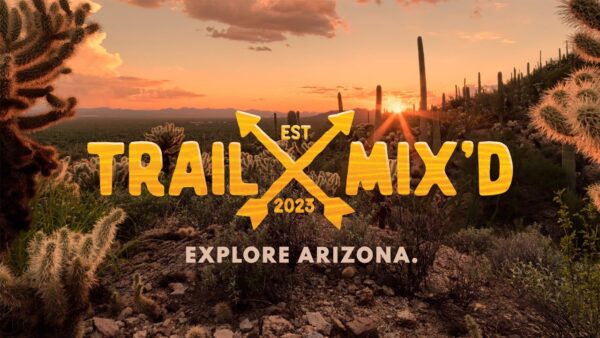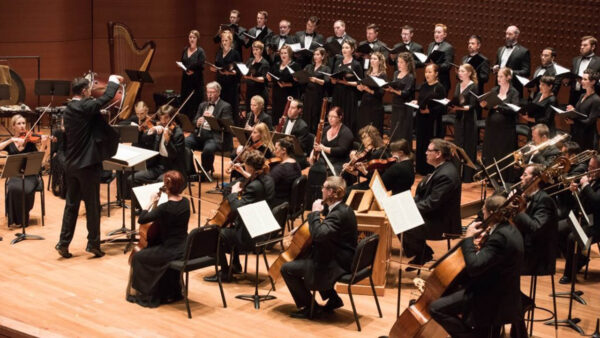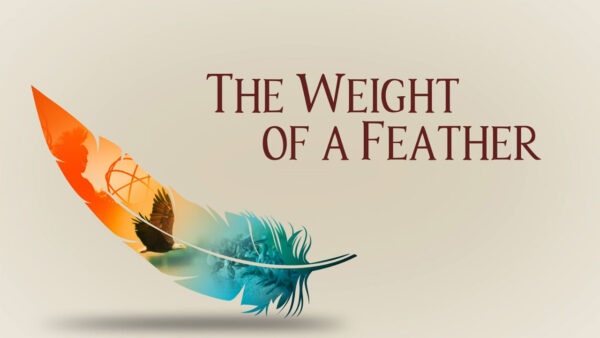
CPB awards grant for new regional journalism collaboration for sustainability
Sept. 13, 2017
The Corporation for Public Broadcasting (CPB) has awarded five public media stations, led by Arizona PBS, a grant to establish a regional news collaboration to enhance and expand coverage of sustainability issues.
Arizona PBS, a member-supported community service of Arizona State University based at the Walter Cronkite School of Journalism and Mass Communication, will serve as the lead station of the Regional Journalism Collaboration for Sustainability.
The partnership, comprised of public television and radio stations in key western cities, will produce multimedia reports on four important sustainability issues: water, renewable energy, climate change and urbanization. Joining Arizona PBS in the reporting partnership are PBS SoCal and KPCC Southern California Public Radio in Los Angeles, KJZZ radio in Phoenix and Denver’s Rocky Mountain PBS, which includes five TV stations and KUVO radio.
“Collaboration is a force multiplier; together stations can do more and innovate faster to provide the local journalism that is part of the bedrock of public media’s valued service to our country,” said Kathy Merritt, CPB senior vice president, journalism and radio. “We’ve seen the importance of our investments in collaboration when, for example, stations in the Texas Station Collaborative were better prepared to serve their communities throughout the devastation of Hurricane Harvey.”
The RJC for Sustainability will be a single news entity comprised of 20 journalism professionals. This includes the hiring of a full-time executive editor who will lead the RJC from Arizona PBS. Each of the stations also will provide one journalist dedicated to sustainability coverage.
“This generous grant from the Corporation for Public Broadcasting will enable us to cover some of the most critical challenges of our time,” said Arizona PBS CEO and Cronkite School Dean Christopher Callahan. “Sustainability matters to everyone, and the Regional Journalism Collaboration for Sustainability can spur civic engagement on issues of political, economic, cultural and social importance.”
The RJC for Sustainability will produce broadcast and digital news content that helps the public better understand the complexities of water, energy, climate and urbanization issues. “As these issues become hot topics for debate, serious journalism is required to keep the public aware and informed,” Callahan said.
The content will be shareable across the five partner stations and will be available to national public media programs, including NPR’s “Morning Edition” and “All Things Considered,” “Marketplace” and “PBS NewsHour.” The initiative also will experiment with new forms of digital video to provide better coverage of sustainability issues.
The RJC for Sustainability includes an oversight committee, charged with setting the strategic vision for the collaborative. Joining Callahan are KPCC President and CEO Bill Davis, KJZZ Vice President Jim Paluzzi, PBS SoCal President and CEO Andrew Russell and Laura Frank, president and general manager of news at Rocky Mountain PBS.
Since 2009, CPB has invested more than $32 million to help launch 29 local and regional news collaborations, creating 127 newsroom positions supporting the collaborations. This included the funding of Local Journalism Collaborations, multimedia centers that cover particular issues such as energy. CPB-funded LJCs include EarthFix based in the Northwest and Fronteras in the Southwest.
Regional Journalism Collaborations were established by the CPB to increase high-quality original and enterprise journalism through reporting partnerships between multiple station newsrooms in a state or region. The RJC for Sustainability received a 27-month CPB startup grant of $699,847.
As the lead RJC station, Arizona PBS has great access to expertise on sustainability issues. ASU is home to the nation’s first school of sustainability, which offers transdisciplinary degrees and research on real-world solutions to environmental, economic and social challenges. ASU also is the home of the Julie Ann Wrigley Global Institute of Sustainability, the hub of university’s local and global sustainability initiatives.
The Corporation for Public Broadcasting (CPB), a private, nonprofit corporation created by Congress in 1967, is the steward of the federal government’s investment in public broadcasting. It helps support the operations of nearly 1,500 locally owned and operated public television and radio stations nationwide. CPB is also the largest single source of funding for research, technology and program development for public radio, television and related online services.
Arizona PBS is one of the country’s largest public television stations, reaching 1.9 million households each week on four digital channels and a website. The station has focused on fostering lifelong learning through quality programming, in-depth news and public affairs and critical educational outreach services. Arizona PBS is a member-supported community service of Arizona State University, based at the Walter Cronkite School of Journalism and Mass Communication.
KJZZ is the NPR member station in Phoenix. It has 280,000 listeners each week and covers the state’s two biggest media markets. With 35 reporters, producers and editors, KJZZ is a major new force in the region. Started in 1956, KJZZ is a regular contributor to NPR’s “Morning Edition” and “All Things Considered.” KJZZ is licenced to Rio Salado College and Maricopa Community Colleges.
KPCC Southern California Public Radio is the most listened-to public radio consortium in Southern California. KPCC reaches from Santa Barbara down to Los Angeles and Orange Counties, and out to the Coachella Valley. Its mission is to strengthen the civic and cultural bonds that unite Southern California’s diverse communities by providing the highest quality news and information service through radio and other interactive media.
PBS SoCal KOCE is the home to PBS for Greater Los Angeles and Southern California. We deliver the full schedule of PBS programs plus content that is for, about and by the people of Southern California. Our content is available free through four broadcast channels, at pbssocal.org, on our mobile apps, and via connected TV services. And we provide the community with early education resources and cultural and educational experiences through partnerships, events and grassroots outreach. PBS SoCal has offices in Century City, Costa Mesa, and Los Angeles. Connect with us at pbssocal.org, Facebook, Twitter and Instagram.
Rocky Mountain Public Media, Inc. is the parent company of Rocky Mountain PBS (KRMA, KTSC, KRMJ, KRMU, KRMZ), Rocky Mountain PBS News, and KUVO Jazz. Rocky Mountain PBS’ mission is to enrich the lives of Coloradans through engaging and essential programs, services and community partnerships that inform, enlighten and entertain. The network began in Denver in 1956 as Colorado’s first public television station. It is now Colorado’s only statewide television network, with stations in Denver (KRMA), Pueblo/Colorado Springs (KTSC), Steamboat Springs (KRMZ), Grand Junction (KRMJ) and Durango (KRMU).







